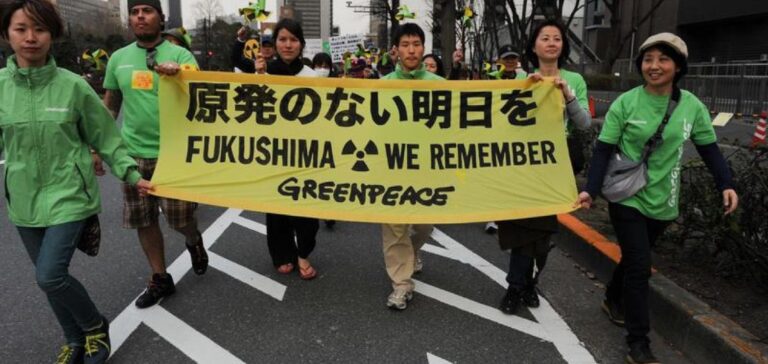The head of the International Atomic Energy Agency (IAEA) met South Korea’s diplomatic chief in Seoul on Saturday. Hundreds of demonstrators denounced the green light given to Tokyo to discharge treated water from the Fukushima power plant.
Fukushima restart protest: Demonstration in Seoul against “insufficient” IAEA approval.
Rafael Grossi, Director General of the International Atomic Energy Agency (IAEA), arrived in the South Korean capital on Friday after a trip to Japan. During which his agency approved the controversial project to release water from the Fukushima nuclear power plant into the ocean.
On Saturday, demonstrators took to the streets of central Seoul to denounce what they called the “inadequate” IAEA review. Rafael Grossi met with Foreign Minister Park Jin. They held up placards criticizing the IAEA and accusing it of having written its report “under the influence of Japan”. Mr. Grossi defended himself on Saturday, pointing to a “very meticulous” approval process within his agency.
“This is the complete final report (…). No expert came to tell me that he or she disagreed with the content,” he assured the South Korean news agency Yonhap in an interview.
Tensions persist as Fukushima restarts: South Korean opposition challenges contaminated water treatment plan.
“It’s been a very painstaking process”. South Korean opposition MPs have also mobilized against Tokyo’s plan, some even going on hunger strike. Mr. Grossi is due to meet members of the opposition in Parliament on Sunday.
South Korea said it “respected” the nuclear watchdog’s decision. Despite growing opposition and protests in the country. The IAEA has approved the Japanese government’s plan to dispose of – after treatment and dilution – some 1.33 million tonnes of contaminated water stored at the soon-to-be-full site of the power plant, ravaged by the triple disaster of earthquake, tsunami and nuclear accident on March 11, 2011.
The agency said on Tuesday that the project “meets international safety standards”. And will have a “negligible impact on the population and the environment”. Japan has declared that rejection will begin this summer.






















